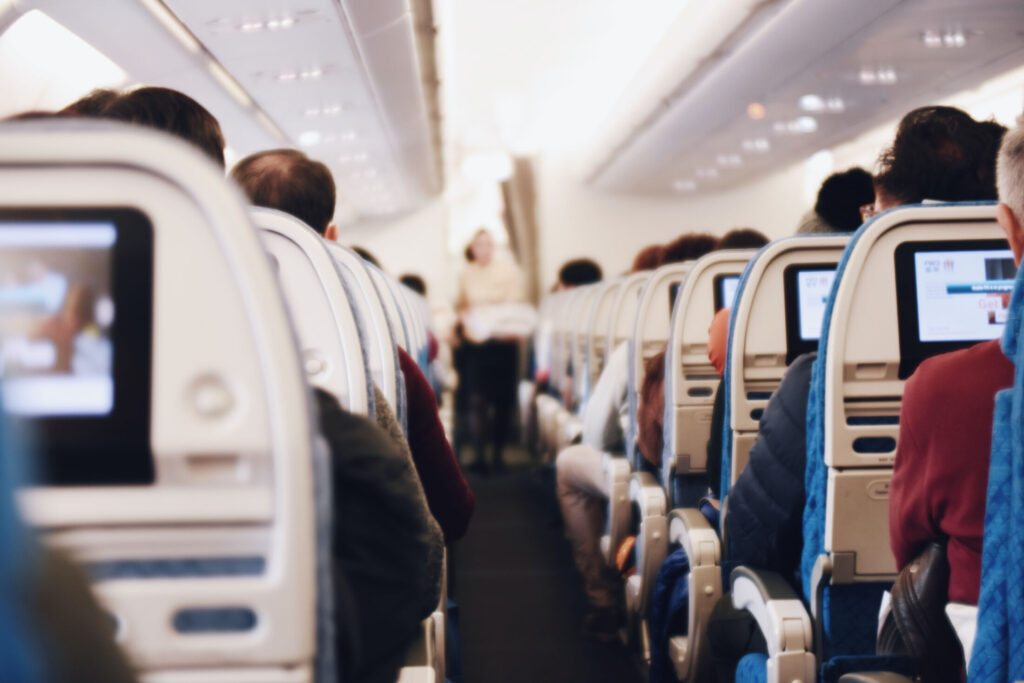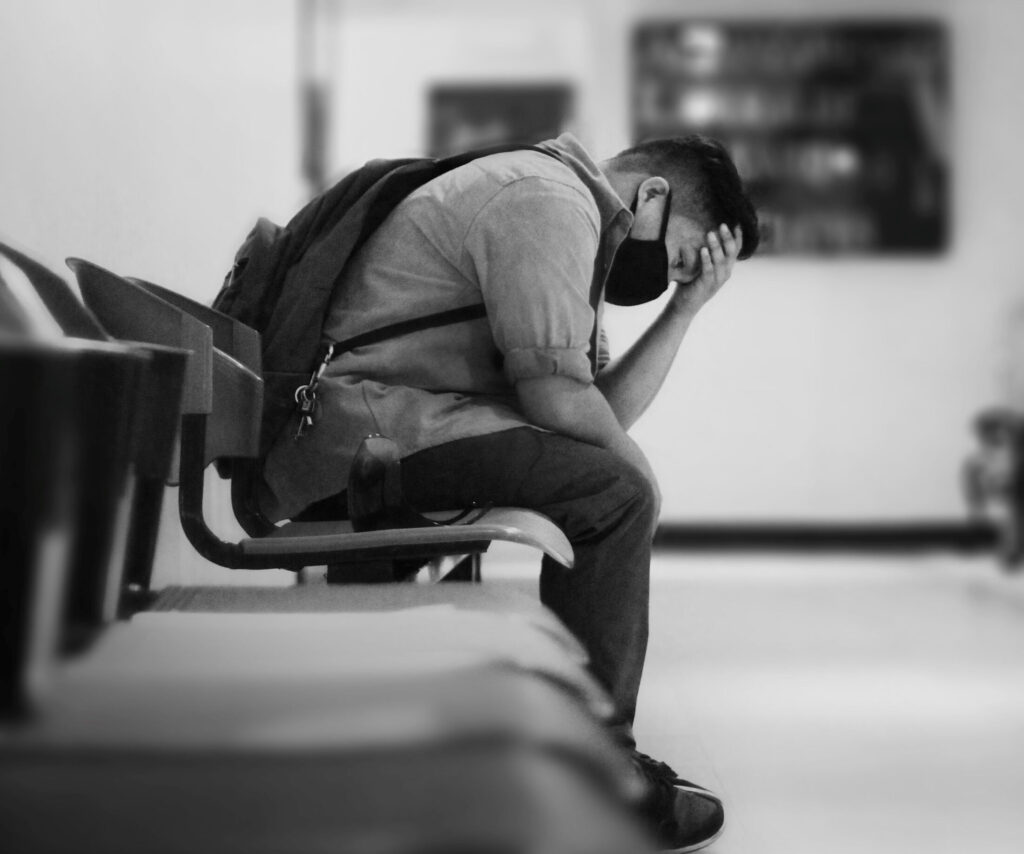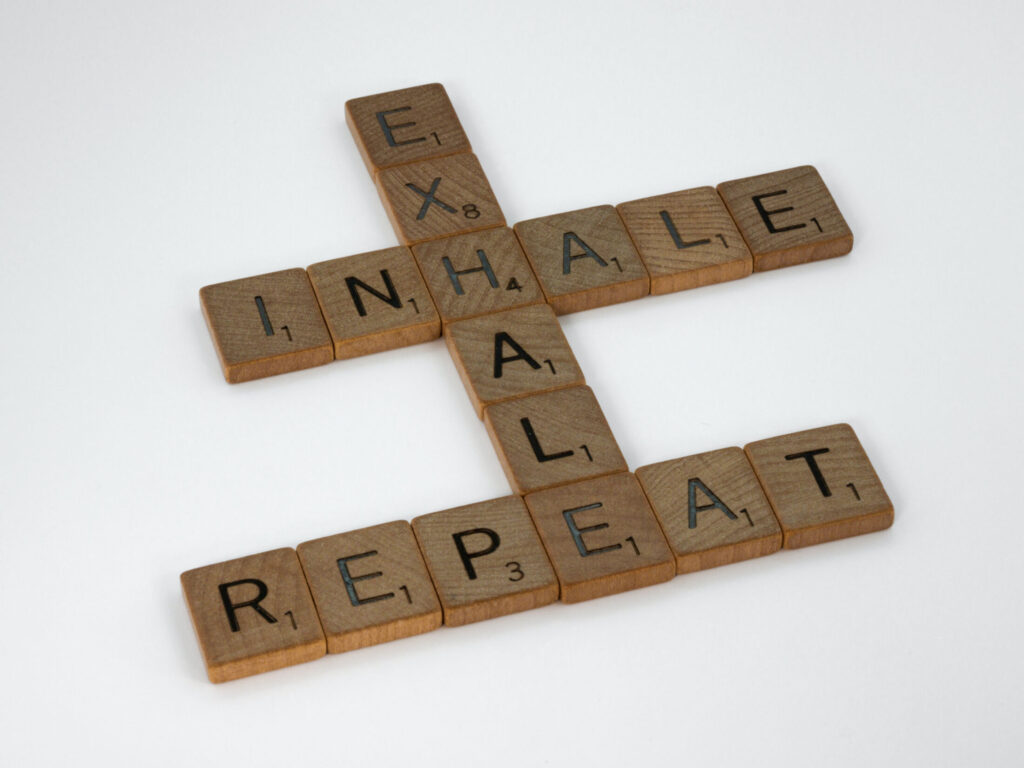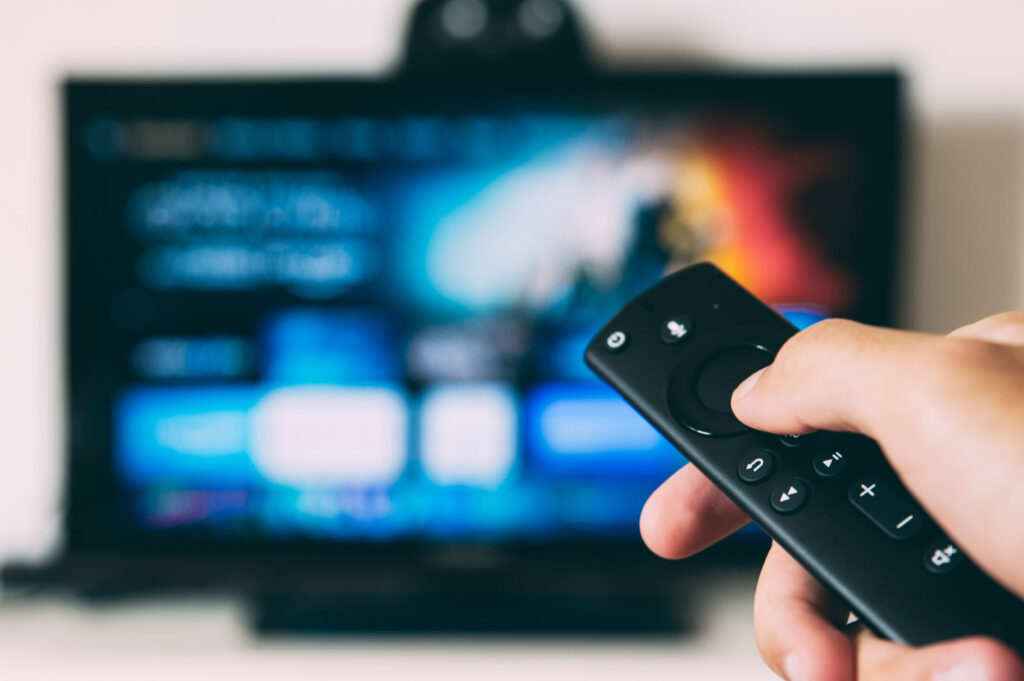I’m on the plane for a brief trip to visit my young adult son. I’m excited about it. I’d left one work task to do enroute. Not ideal, but it happens. I’m usually pretty focused on the plane, I’ll get it done.

Photo by Suhyeon Choi
Opening my backpack to start my project, I find…no laptop. There’s a pocket I always keep it in. I check every other pocket, just in case. And check again. No laptop. I’m sure I packed it. I’m sure I got it out and put it in a tray at the security scan. I must have put it back, right?
My heart rate’s a bit elevated; my forehead is tightening; my mind’s feeling unsteady. I take a breath. I think back.
I remember being fascinated, and a little horrified when my bags were coming down the track at security. The TSA folks had a new system where a little arm could shoot out and divert the tray onto a track on their side. My carry-on and backpack were both pushed over. I watched the mechanical arm shoot out and reject me. Twice! The TSA person was apologetic, “You’re fine, they’re doing a lot of training,” handing me my bags without extra inspection. The area was congested and moving fast. I’d pulled away to another table to put things back together. Two bags, a tray with shoes and cell phone. Was the laptop on the last tray – after the bags – and I never turned back to get it? Wow.

Photo by Christopher Catbagan
Having an explanation helps. But I’ve still lost my laptop. Maybe I’ll get it back from lost and found, maybe not. What to do?
And what not to do? Start beating myself up? Get more upset? I felt the urge. I can feel the start of the narrative. I’ve left things behind recently. “You keep forgetting stuff!” I can feel the start of counter-narratives explaining to my inner critic too, “The security line is fast-moving and stressful. It’s harder to track things when traveling alone.”
I keep breathing. I close my eyes for a few minutes. This inner argument isn’t helpful. What happened, happened. I’m on a plane, I don’t know if I’ll get my laptop back. I can’t start my project now. I set an intention that when traveling alone I’ll slow down and look back every time anything gets out of my bags. Maybe that’ll help. But I don’t think that will guarantee that I won’t forget things in the future.

Photo by Nik Shuliahin
Things go wrong and we get stressed. One minute everything’s fine and then we discover that something’s wrong. Our nervous systems are tuned to put us on alert in response to stressors – especially a shocking moment when we see something wrong or feel threatened.
The same “wiring” that evolved to get our attention when there’s danger fired up in this situation, too. We need priority access to our resources for urgent action. Fight, flight, or freeze. Not that adrenaline and more blood flow to my extremities so I can run faster or hit harder are exactly what I need in a case like this. Plus the inner critic is usually waiting in the wings to add more stress to our stress with that toxic commentary about our failings.
Mindfulness helps with the shocking moments. Repeated practice with mindfulness practice does help. The practice strengthens our ability to accept what happens. A more mindful stress response pathway is possible. More responsive, less reactive. And less “piling on” by the mind.
One of the very helpful features of a more mindful stress response is less retriggering of stress reactivity with the mind. I could easily have been distracted and upset for the rest of the visit. I’ve done that before, haven’t you? That mental tape loop that runs replaying what happened and what should have happened. Vacations can be ruined by our minds can’t they? And so can relationships.

Photo by Jamez Picard
Arriving in Boston, I’m delighted to see my son and continue our trip. I’ll figure out a way to get to my project. Plus, I realize I can reframe the urgency a bit here: the world won’t end if my project is late.
Mindfulness training doesn’t mean we’re cheerful about life’s challenges. It’s upsetting when something goes wrong. And yet things do go wrong. For many of us, there’s a lot more than a forgotten laptop to worry about: illness, loss, financial insecurity, discrimination and bias, and more. Mindfulness can help us turn toward whatever is present and respond with a little more clarity, kindness, compassion, and strength.
A recent summary from the American Psychological Association reminds us that mindfulness strengthens our ability to use attention wisely and to accept what happens. Further, they say we’re “less likely to react with negative thoughts or unhelpful emotional reactions in times of stress.” I’m grateful that that was my experience here. I don’t always handle these challenges so gracefully, but I’ve noticed that over time, my practice has strengthened my ability to respond rather than react.
My son and I enjoyed a pleasant evening and then turned in for the night at the hotel. As I settled down to sleep, I realized that our neighbor’s TV was on just loud enough to hear through the walls. Not loud enough to justify a complaint to the front desk, but loud enough to be distracting. The human voice is a magnet to attention. I found myself trying to figure out what kind of show it was. A police procedural? A sit-com?
It was pretty late. I was sure that whomever it was next door was likely about to turn the TV off and go to sleep. But it’s a kind of magical thinking that what makes sense to me will affect a stranger in a hotel in Boston, right? Then I started doubting this. Do some people actually sleep with the TV on, I wondered?
Here was another kind of stress to practice with. More of an annoyance than a shock. But annoyances when they get serious and sustained – becoming chronic stressors – are a major threat to our health. Our systems tend to be less well-designed to cope with the annoyances that get under your skin. Would I lose a night’s sleep here?
Then I remembered I could direct my attention more wisely. I tuned into my breathing, feeling the flow of the inhales and exhales in my body. Letting the breath flow more smoothly. The TV noise would catch my attention, I’d tense a little, and I’d redirect it back to the breath and relax again. It took a little while, but soon I was asleep.

Photo by Matheus Vinicius
I can’t say I had a fantastic night’s sleep. I woke up a few times. TV noise still there. A little incredulity and annoyance would start up. And I’d remember: back to the breath. Back to being in choice with attention. Back to sleep.
These are just two examples. What shocking moments or ongoing annoyances have you experienced lately?
They happen in all parts of our lives. At work, at home, in our usual daily routine, on trips, with people we’re close to, with people we don’t know. We don’t love them, but small and large disasters and annoyances are a part of the fabric of life. Unavoidable. And practicing wiser responses to the smaller ones helps to prepare us for the big challenges of acute and chronic stress as they arise.
Like any training that changes body and mind, mindfulness practice is an investment. We know that the biology of neuroplasticity, which seems to be an underlying mechanism of all of this, takes time and much repetition. In the practices of mindfulness, we simplify the situation and use our mind differently for a time as we practice wise attention and acceptance.

Photo by Brett Jordan
Consider the investment of doing 10 or 20 minutes of Awareness of Breathing practice, for instance. While we do this, we’re practicing accepting our current state as it is, working with distraction, coming back to the breath. Strengthening mindfulness. Outcomes aren’t immediate or guaranteed. How could they be when something as complex as our brain – with its billions of networked neurons – is involved? And yet on the whole, experience and research both show very helpful results that help us meet our stressors more gracefully. We’ve each invested many hours in other kinds of training. Why not invest in mindfulness, too?
Oh, and that unfinished work project? It was writing this article!
As I wrap this up in the hotel lobby on my sleeping son’s laptop, I’m deeply grateful that I’ve had the opportunity to make an investment in mindfulness. I still do my fair share of resisting reality, of beating myself up for my mistakes, of letting my attention drift somewhere unhelpful. But I’m confident I do all of that a lot less than I would have. I know my life is better for it. Probably much better. And I’m confident it’s been helpful to those in my life, too – that I’m better in my relationships with them. I’ll clock out now and enjoy the rest of my trip. Can’t wait to see my boy’s new apartment and life in Maine!
Wishing you a Mindful Fall,
Tim Burnett
–
Tim is the Executive Director and Guiding Teacher of Mindfulness Northwest.
This article was part of our Practice Letter newsletter. If you’d like to receive this monthly publication in your inbox, please sign up here.


